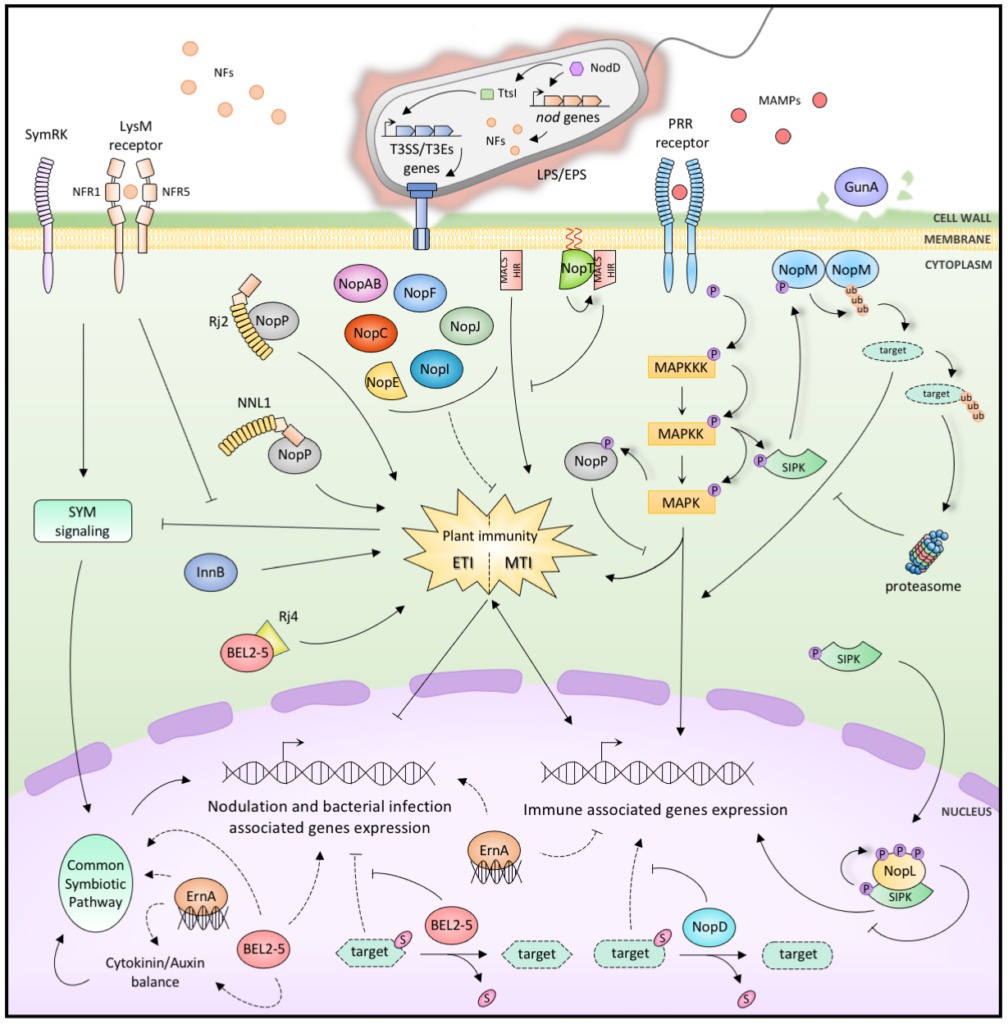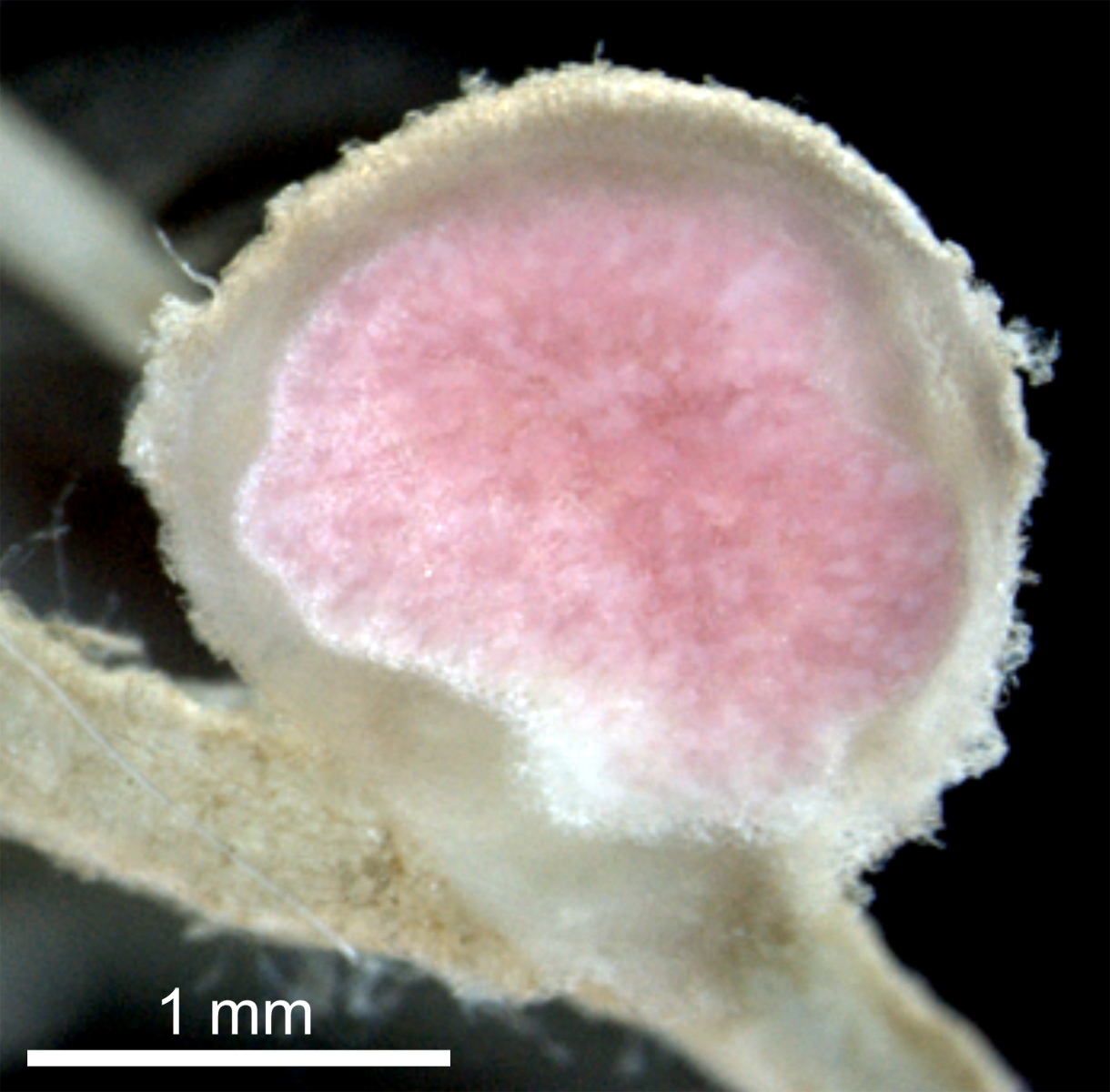In Teulet et al. (Annu. Rev. Microbiol. 2022. 76:45–65), we reviewed the roles and impacts of T3SS on nitrogen-fixing associations between legumes and rhizobia.
To suppress plant immunity and promote the intracellular infection required for establishing beneficial symbioses with their legume hosts, many rhizobia use type III secretion systems (T3SSs) that deliver effector proteins (T3Es) inside host cells. As in plant-pathogen associations, interactions between components of the immune system of legume hosts and T3Es secreted by rhizobia will determine the symbiotic outcome. If they remain undetected, T3Es may reduce plant immunity and thus promote infection of legumes by rhizobia. If one or more of the secreted T3Es are recognized by the cognate plant receptors, defense responses are triggered and rhizobial infection may abort. In addition, some rhizobial T3Es can also replace the need for nodulation (Nod) factors to trigger nodule formation.



